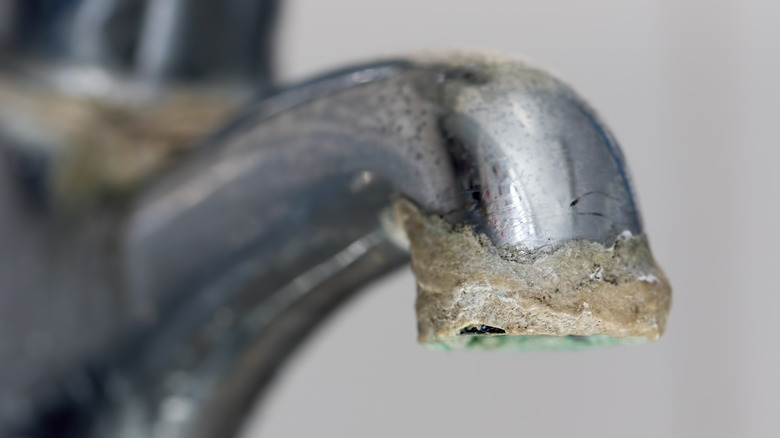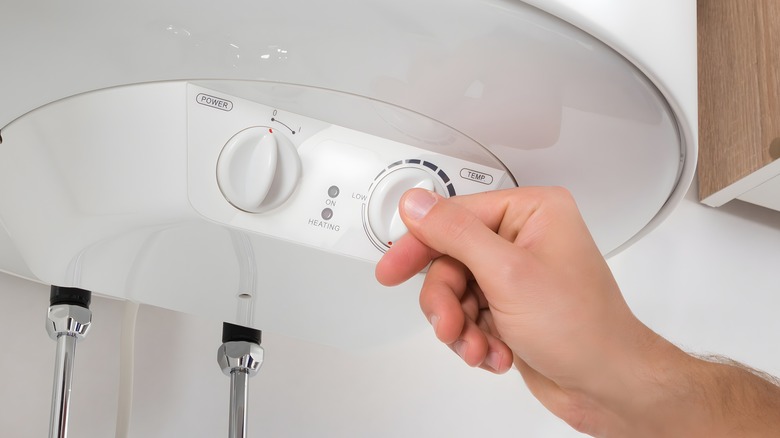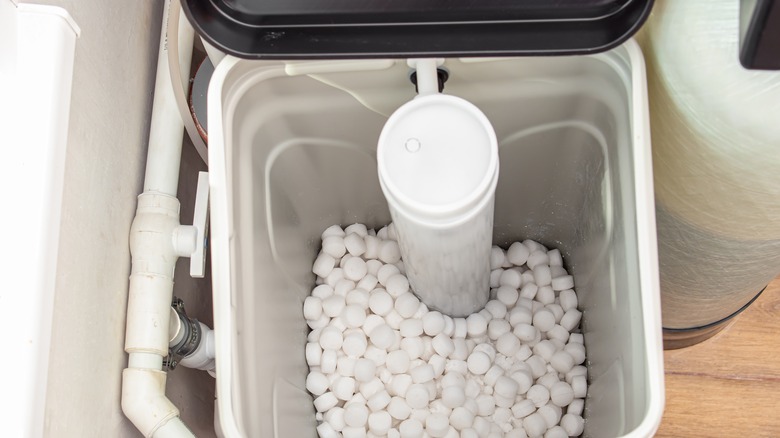The Simplest Solution For Preventing Hard Water Build Up In Your Home
The good news about hard water is that it can improve your health. The bad news is that it does the opposite to pretty much everything else, from drying out your skin to wearing down your appliances. One major side effect of hard water is scale build-up, which you can prevent with one easy solution.
You may know hard water as the stuff that tastes funny and leaves white spots on your dishes and sink. That's because this is water that has comparatively high amounts of dissolved minerals, mainly calcium and magnesium. Those minerals react with soap and detergent to form cloudy spots and residue. But white spots are only the beginning of the horrors that hard water can cause in your home. The minerals also leave behind deposits that accumulate to form a hard scale, wearing down appliances more quickly, reducing their efficiency, clogging pipes, and promoting rust. Your skin and hair may feel harder to get clean, and your clothes may feel stiffer and become more prone to holes.
According to the experts, turning down the water heater's temperature setting is one straightforward solution. "The higher the water temperature is set, the more likely the minerals in the water will separate," Eddie Linares, Virtual Plumbing Expert at Frontdoor, told House Digest in an exclusive interview. Turning down the temperature won't stop the formation of mineral deposits completely, but it can slow it down. However, there are both pros and cons of this method, according to Linares.
The best temperature for hard water
Turning down your water heater's temperature can save energy (since the heater doesn't have to work as hard), reduce mineral build-up in the heater, and make it last longer, Linares said. "The process will be different for each water heater and tank. And tankless water heaters each have a different step-by-step process," Linares explained exclusively to House Digest. "If you are unsure, or not comfortable doing it yourself, it is recommended to refer to the manufacturer's user manual or call a professional to lower the temperature of your water heater."
The sweet spot is 120 degrees Fahrenheit. That's low enough to reduce the formation of mineral deposits, but not so low that you risk the growth of bacteria such as Legionella in the water, per Linares. You might notice that you're not able to clean as effectively with water set to 120 degrees, and your showers might feel less cozy, depending on your preferences. It's up to you to decide if those trade-offs are worth it for the decreased risk of hard water build-up. If not, there are other solutions to consider.
The most effective solution for hard water
While turning down the water heater is the simplest solution to hard water, it's not the most effective, according to Linares. "The most efficient way to alleviate hard water in a home is by installing a whole house water softening system or a descaler," Linares told House Digest exclusively. Water softener systems remove minerals from the water as it enters the house, so they eliminate the risk of build-up altogether. The downside is that they can be expensive at an average price of $1500, depending on the type and size. "Other options to consider could include a whole house filter which can reduce minerals and other impurities in the water," Linares said.
Not ready to install anything? You can also address scale build-up on a case-by-case basis to prevent any serious damage by hard water. Linares suggested regularly cleaning faucets, shower heads, and other similar spots to dissolve mineral deposits and prevent scale. To reduce build-up in your washing machine or dishwasher and prevent white spots, use a detergent designed to soften hard water.


